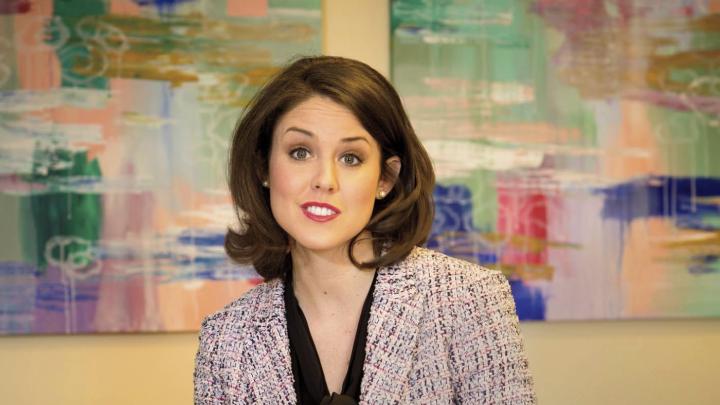When forced to perform in a high-pressure situation—addressing a room of skeptical colleagues, meeting with a demanding boss, or singing for a crowd—keep calm! That, at least, is the conventional wisdom. Yet new research by social scientist Alison Wood Brooks, assistant professor of business administration at Harvard Business School, suggests that people in fact perform best not when they try to relax, but when they take simple steps to get excited about the challenge at hand.
In previous work, Brooks studied how even run-of-the-mill anxiety (Did I remember to turn off the stove? Will I meet my deadline?) can harm decision-making. Her research revealed that anxiety is a drain on cognitive resources, using up brain power and information-processing ability and reducing confidence. “Feeling anxious is very unpleasant,” she says, so people go to great lengths to avoid it. If they are involved in negotiations, for example, “they exit early, they make large concessions, they respond very quickly to counteroffers, and ultimately they perform poorly.”
Yet anxiety doesn’t always harm performance. The Yerkes-Dodson Law, formulated in the early twentieth century, maintains that “a moderate amount of anxiety can actually be motivating and energizing,” Brooks explains: it may prompt thorough preparation for a high-stakes presentation. If arousal and anxiety build, though, performance begins to decline.
In especially large doses, anxiety can be debilitating, and trying to quash mounting anxiety in high-pressure moments is a tremendous challenge. “You must fight against your physiology—your automatic physical responses to the situation—which is very difficult to do,” says Brooks, who began to wonder whether learning to think about this physiological state in a different way might help people. Anxiety and excitement, she recognized, “are very similar emotional states. Both emotions are high-arousal, signaled by a racing heart, sweaty palms, and high levels of the stress hormone cortisol.” Her studies have found that people do perform better when they assign those sensations a positive meaning, calling them “excitement,” rather than “stress” or “anxiety.”
In a series of three experiments she describes in The Journal of Experimental Psychology: General, Brooks invited people into a behavioral laboratory and asked them to perform an anxiety-inducing activity: sing karaoke, give a speech, or complete a difficult math problem. She divided the participants for each task into multiple groups; some were instructed to say “I am excited” aloud or read instructions on getting excited, and others were asked to say, “I am calm” or “I am anxious.”
Brooks says she saw a “Fake it until you make it” effect among the excited group. (“If you say, ‘I’m excited,’ you’re likely to actually feel excited,” she notes.) The karaoke-singing participants used a video game with voice-recognition software that scored singing performance on measures such as volume, pitch, and rhythm. “People who said, ‘I’m excited,’ before they sang actually sang better on this objective performance measure,” she reports. In the public-speaking experiment, independent judges found that excited people seemed more persuasive, competent, persistent, and confident.
What makes the excited state so powerful? Brooks explains that feeling anxious is “associated with a threat mind-set. We’re worried about how things can go wrong in the future.” But when people are feeling excited, they are “focusing on the opportunities, how things can go well and work out in their favor. What we find in this paper is that, by focusing deliberately on the positive potential outcomes, you actually are more likely to achieve them.” The findings are particularly appealing, she adds, because simple self-encouragement can make a dramatic difference.
Brooks had the opportunity to put her findings to the test when she was applying for jobs as she completed her doctorate in 2013. The process involved lecturing on this very research before groups of senior academics who peppered her with tough questions. It was a “challenging, thrilling, and strangely reflective process,” she says. “Everyone loved asking me, ‘Are you anxious, or are you excited?’”








